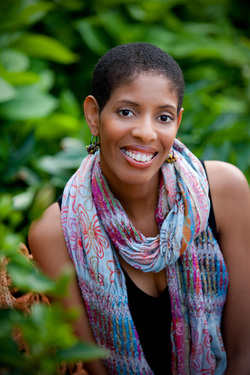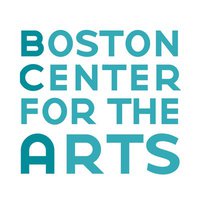 Jacqueline Lawton: Why did you decide to get into theatre? Was there someone or a particular show that inspired you? LYDIA R. DIAMOND: I was Singapore Sue in Dames at Sea in an 8th grade musical in Sparta, IL. Already you can imagine how racially problematic that was on so many levels… And despite being cast as the iconic overly-sexualized Asian temptress (arguably prostitute), because I was the only “other” they had… I was in. Strait up, this was the world for me… I begged out of violin lessons, and from then on I was a theatre geek. JL: Next, tell me a little bit about your writing process. Do you have any writing rituals? Do you write in the same place or in different places? LRD: I would describe my writing process as aggressively procrastinative. When I do finally find my way to the work ethic I know is in there, just have to fight to get to, I am best writing in bed, or in a coffee shop, but it has to be exactly the right coffee shop with exactly the right table. When I’m writing on a tight deadline, it’s at my desk in my office; it makes me really remember that I’m an adult with a job. I imagine less, but write faster and more succinctly. JL: Describe for me all the sensations you had the first time you had one of your plays produced and you sat in the audience while it was performed...what was different about the characters you created? How much input did you have in the directing of that work? LRD: Until I had my first not self-produced play (and that was its own kind of thrilling nervousness, mitigated though, by that I was usually acting in it, had produced it. I didn’t have the balls or the humility to sit fully in the discomfort and awe of an opening night. When I did have my first production, it was directed my dear friend Chuck Smith at the Goodman Theatre in Chicago. On opening night I didn’t breathe until the first laugh landed. Problematic, as it wasn’t a comedy… but I didn’t know about Xanax then, and so I just didn’t breath. And after that first laugh landed, and then people gasped, and cried, and laughed and cried… and the actors were so good, and the set was so beautiful and my husband was on my left holding my hand and my director was on my right holding my hand, I felt powerful, and awestruck, and profoundly happy, and scared totally out of my shit. I’ve been lucky enough and have consciously tried to work with directors who honor the role of the playwright in a process and feel there to serve the vision of the play. That is not to say that I want someone to roll over and do as I say. I want to work with directors with a strong understanding of their own aesthetic values, the ability to talk about where they meet mine, a willingness to figure out how communication will work best for them in the room and out, and a willingness to challenge and prod and hear and back down sometimes and stand firm others. I often think that second to my writing, my greatest skill is always trying to be open and generous and grateful and thoughtful in a rehearsal process. I find that the more humble I really am, the more I care most about others, the easier it is to communicate my thoughts and concerns directly and honestly… and know when not to communicate them. So, I had considerable input in the first play someone else directed, and learned good hard lessons about when I should maybe not have pushed my agendas too hard. JL: What do you hope to convey in the plays that you create--what are they about? What sorts of people, situation, circumstances, do you like to write about? LRD: I want first and foremost for audiences to feel satisfied… to have been entertained, be it through laughter and/or heartache or fear or grief. (Though laughter feels very important to me even in the darkest of plays.) I write about race and class and gender in America. Our collective unwillingness to talk about these things, our denial, shame, anger, and angst fascinate me. Whenever I am shocked or confounded or amused or hurt or feel marginalized or empowered, I think it belongs in a play. Lately, I find myself writing less from a place of conviction, and more from a deep deep and kind of freighting questioning. Perhaps because I came to playwriting as a young performer, and didn’t think of myself as a playwright for a long time, I felt no pressure and a sort of fearless, twenty-something year old passionate conviction that I really had things to say that people really had to hear so that the world would change. Now I am not sure and have to work harder to earn a place for my words in my own creative process… I spend more time questioning and writing from a place of not knowing. It’s frightening, but definitely feels like growth. JL: Tell us about your play and what inspired you to write it. LRD: I began writing Smart People (always its title, even before Sara Jessica Parker was in a movie called that) before Obama had begun to run for president. I wanted the challenge of taking on race head on. It was scary then and it is scary now… because I’d never taken it on that directly. The protagonist in this play is a white man who studies our perceptions of race through brain imaging and biological components. I just wanted to know what would happen if I, a black woman said… O.K. Here’s my race play… that’s right, not my play about a family deeply affected by race, or a historical person whose life realities had everything to do with race in our country, but actually say… O.K. My thesis is straight up Race and what it means and how it fucks us up and how it is messy. And it is about these wonderfully flawed, struggling, interesting characters and how they navigate through the world and with each other. Also about hyper intellectualism and striving and wanting and privilege. JL: What do you want audiences to think about after experiencing your play? LRD: I hope they are polarized about how they feel about it, each character the play itself. My fantasy is that four friends who saw it and all liked it, find themselves arguing about what happened, what the character’s motivations were, who they liked and didn’t. Second to that, I suppose I’d like a person who hated the play to have a knock down drag out argument with a friend of theirs who loved it. Even better if they go to blows. Then my work is done! JL: Now, I’d love to hear your thoughts about working in Boston. Finish this sentence ...
JL: How do you feel the Boston theatre community has addressed the issues of race and gender parity? How has this particular issue impacted you and your ability to get your work produced on the main stages? LRD: I have seen so much progress in this arena. I acknowledge that I have had very close relationships with only a few companies in the city, and so of course, those would be the ones that also have a greater dedication to seeing a range of work produced. That said, there is a disturbing reality all over the country in the institutional infrastructure and audience composition of theatres, especially the ones with the largest budgets, that shows a frightening lack of racial diversity. I’ve appreciated Company One’s wonderfully diverse audiences… on any given night I see many different ethnicities, ages, genders, and sexual orientations (though that would be speculative – I’ve not actually asked anyone about their….anyway, you know what I mean.) I still maintain that Company One seems to have done that more successfully and organically than any other companies I’ve had the pleasure of working with. (Also, Mo’Olelo Theatre Co. in SanDiego is incredible at this.) And, again, all that said with the acknowledgement that I’ve not ever been in hundreds of thousands of U.S. theatres. JL: What advice do you have for up-and-coming playwrights? LRD: Write. Don’t be defined or driven by any preconceived notion of “success” or outside affirmation. Seriously, there just straight up isn’t enough to go around, unless we make it for ourselves, and don’t think we’re only successful if we’re being produced by someone with a swanky lobby. See plays (I don’t see enough), see plays, be gracious and remember that everyone you’re collaborating with is breaking their backs on your behalf so be kind and generous, and work to know what your play wants to be, so that you can listen with an open ear and open heart to others who see it more clearly simply because they are not you. JL: What’s next for you as a playwright? Where can we follow your work? LRD: I’m beginning to research a play about a West African woman who was raised in Queen Victoria’s Court. It’s a long overdue commission for the Steppenwolf Theatre. I have a production of Smart People coming up at the Huntington next season. I’m taking my first tentative steps into the world of television writing (which strangely feels very much like playwriting, just with a really fun and challenging learning curve). After that I will be writing a play about Toni Stone, the first Black woman who played baseball in the Negroe Leagues, it’s a collaboration with Martha Ackmann, who wrote her biography, the producer Samantha Barrie, and director Pam McKinnon. Toni Stone is amazing. I don’t have a website, and don’t facebook or tweet or anything. But my husband does google me and most of whatever I’m doing, or whatever shows are being produced somewhere, pop up. I’ve also just discovered that if I write full time, I write more… amazing. So, I actually suspect that all of these projects will be coming to fruition sooner than later.
0 Comments
Your comment will be posted after it is approved.
Leave a Reply. |
My BlogI'm a playwright, dramaturg, and teaching artist. It is here where you'll find my queries and musings on life, theater and the world. My posts advocate for diversity, inclusion, and equity in the American Theatre and updates on my own work. Please enjoy!
Categories
All
Archives
June 2020
Reading List
|



